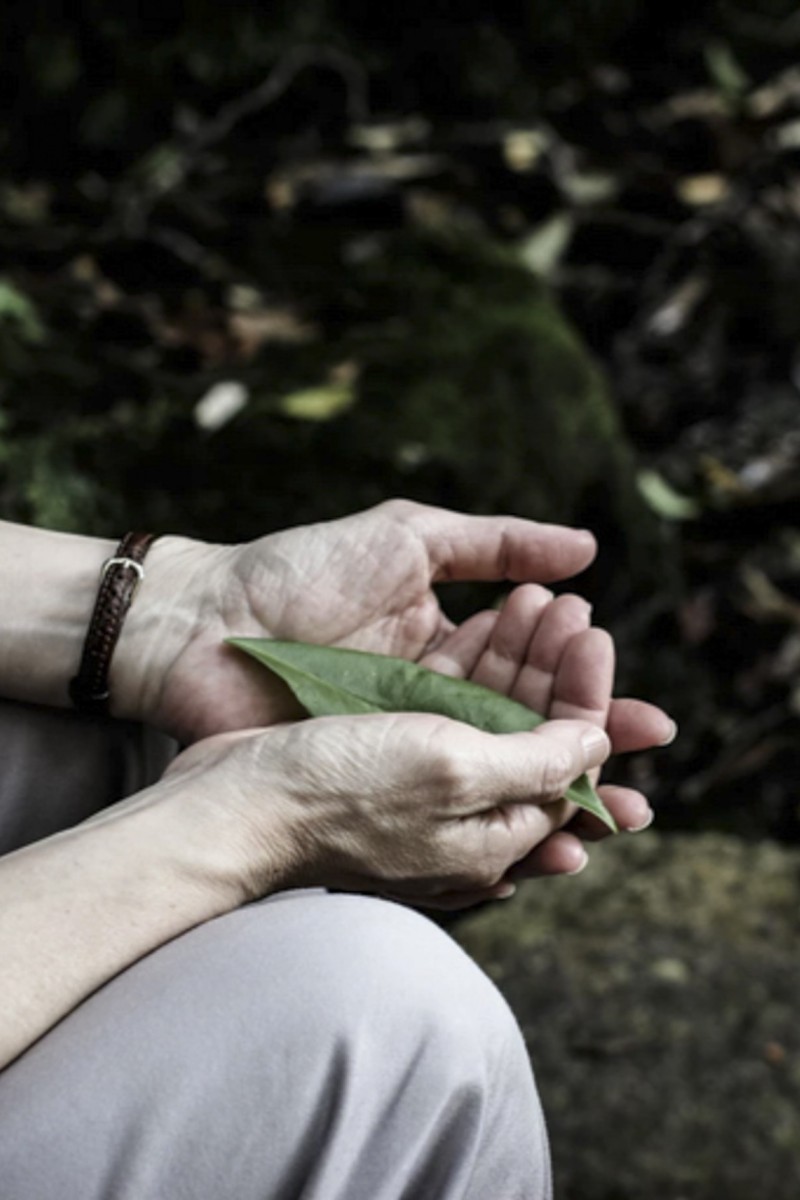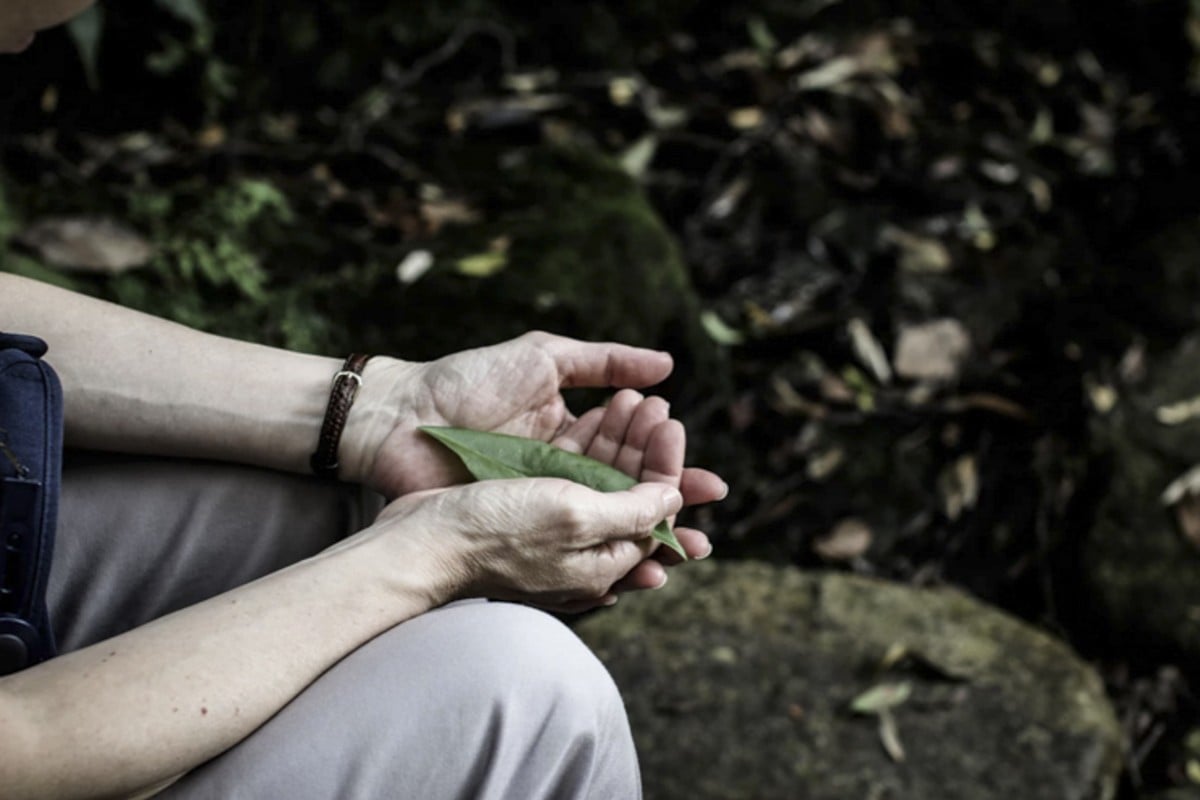
Study Buddy (Explorer): Try forest bathing in Hong Kong to take a break from high-stress lifestyle
- Japanese practice called shinrin-yoku is about improving your well-being by immersing yourself in nature with all five of your senses
- Each week, Study Buddy Explorer presents an interesting story that we have adjusted to be more accessible for all English learners
 Research has found that those who spend more time in nature have reduced risks of many chronic illnesses. Photo: Courtesy of the Lung Fu Shan Environmental Education Centre
Research has found that those who spend more time in nature have reduced risks of many chronic illnesses. Photo: Courtesy of the Lung Fu Shan Environmental Education CentreContent provided by British Council
Read the following text, and answer questions 1-9 below:
[1] Joanne Cheng is happiest when walking among trees and sitting by streams. And she wants others to join her in nature, particularly stressed-out city dwellers. Cheng is a project manager at the Lung Fu Shan Environmental Education Centre. It is a facility jointly established by the Environmental Protection Department and the University of Hong Kong.
[2] The centre has many nature-focused educational programmes, such as eco tours, stargazing and tree climbing. It also offers forest bathing, a Japanese practice, called shinrin-yoku. This activity is about taking in a forest’s calming atmosphere to improve well-being.
[3] But Cheng has a message for those keen to sign up: forest bathing is not a competition. “It’s about immersing ourselves in the forest and connecting with nature,” said Cheng, a certified nature and forest therapy guide. “It’s not a physical challenge.”
[4] The activity is a reminder for people to enjoy nature because the idea of forest bathing can seem odd to many in Hong Kong. Cheng explained: “When people go into the countryside, they have different purposes, like to complete a hike or an outdoor challenge or an extreme sport.”
[5] “But forest bathing is not that – it’s about connecting with nature by activating the senses of sight, hearing, taste, smell and touch,” she said. Our senses have been dulled in today’s digitalised world, where some prefer to stay in an air-conditioned room staring at a screen.
[6] While she would be happy to safely guide you in nature, Cheng pointed out that she was not a therapist. “It’s not like you’re going to see a psychologist, and I’m going to solve your problems. I just have the experience and the training to be able to lead you to nature, to make sure you have a safe experience when you connect with nature.”
[7] Forest bathing was developed in Japan in 1982 by the Ministry of Agriculture, Forestry and Fisheries as a response to karoshi, a term for death by working too much. Now, forest bathing has spread around the globe, from South Korea and Malaysia to Finland and the United States.
[8] In 2018, research by the University of East Anglia in Britain looked at a collection of studies – 150 in total – that tracked 290 million forest-bathing participants from 20 countries. It found that people who spend more time in green spaces have reduced risks of a number of chronic illnesses. including coronary heart disease and type 2 diabetes. The study also discovered that those spending more time in nature had lower blood pressure and lower cholesterol.
[9] Cheng said forest bathing was an invitation for Hongkongers to “go back to base”. “We have lots of stress from the pandemic, a high suicide rate, people’s blood pressure is high – and all because they stay in the city for too long,” she stressed. “These are symptoms of urban disease, so people need to reconnect with nature.”
For details about guided forest bathing and other programmes from the Lung Fu Shan Environmental Education Centre, visit their website.
Source: South China Morning Post, August 22
Questions
1. According to paragraph 1, Cheng enjoys ...
A. working in the city
B. being in nature
C. observing other people
D. planting trees
2. Based on paragraph 2, what do people do when practising shinrin-yoku?
3. Find a word in paragraph 3 that means “involving oneself deeply in a particular activity”.
4. Decide whether the following statements are True, False or the information is Not Given in paragraphs 4 and 5. Blacken ONE circle only for each statement. (4 marks)
(i) Going on a hike in Hong Kong’s country parks is a form of forest bathing.
(ii) Cheng believes the practice of forest bathing is the best way to enjoy nature.
(iii) Forest bathing allows us to engage all five of our senses.
(iv) Cheng spends about half of her work day in front of a computer for her work.
5. According to Cheng in paragraph 5, what can happen when spend most of our time staring at screens?
6. According to paragraph 6, Cheng does NOT ...
A. help people to connect with nature
B. teach participants how to appreciate nature
C. treat those with mental health problems
D. act as a forest guide
7. In paragraph 7, what was shinrin-yoku created to address?
8. In paragraph 8, what are three benefits of forest bathing? (3 marks)
9. According to paragraph 9, the “symptoms of urban disease” include ...
A. high suicide rate
B. lots of stress
C. high blood pressure
D. all of the above
Answers
1. B
2. They take in the calming atmosphere of a forest to improve their well-being.
3. immersing
4. (i) F; (ii) NG; (iii) T; (iv) NG
5. Our senses become dulled.
6. C
7. death by overwork in Japan
8. reduced risk of coronary heart disease / reduced risk of type 2 diabetes / lower blood pressure / lower cholesterol (any three)
9. D
